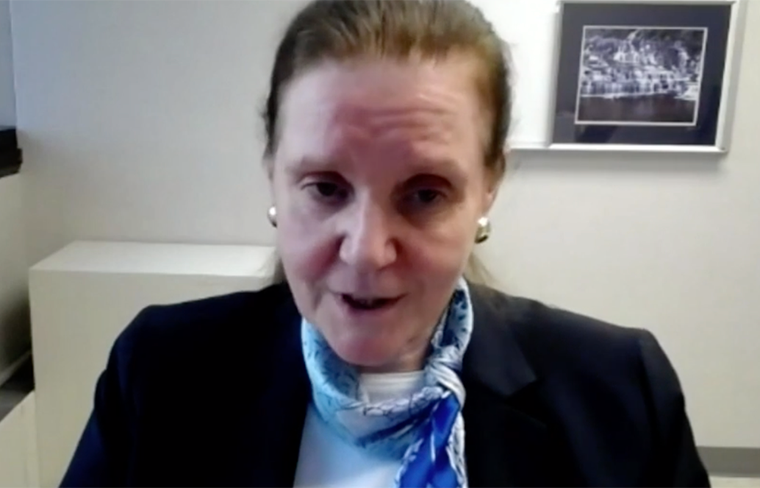
-
New findings inform new approaches to Sjögren’s
At ACR Convergence 2021, a panel of experts — A. Darise Farris, PhD, Blake M. Warner, DDS, PhD, MPH, and Xavier Mariette, MD, PhD — explored the dynamics of the treatment of Sjögren’s syndrome, including epigenetic links between immune and salivary gland dysfunction and targeted therapy.
-
Age is a key factor in effective immune response
Cornelia M. Weyand, MD, PhD, explored the mechanisms and sequelae of aging immune systems during ACR Convergence 2021. For even the healthiest humans, the age-related risk of cancer, cardiovascular disease, infectious disease, and neurodegenerative disease comes back to one factor: older immune systems are less flexible, less responsive, and less effective.
-
Some chronic pain can be managed without drugs
Rinie Geenen, PhD, discussed pain management regimens in rheumatic and musculoskeletal diseases, Christine Stamatos, DNP, ANP-C, discussed targeted pharmacologic and nonpharmacologic therapies for chronic pain, and Afton Hassett, PysD, outlined behavioral interventions as pain management.
-
Post-COVID-19 syndromes can affect several systems
In an ACR Convergence symposium, Anthony L. Komaroff, MD, discussed neurological syndromes associated with long COVID, Matthew Ehrlich, MD, discussed the mental health impact of the pandemic, and George A. Alba, MD, discussed the pulmonary sequelae of COVID-19.
-
Expanded provider reach, patient time savings boost popularity of telemedicine
Nearly 90% of all physicians had used telehealth by the end of 2020, about half of them for the first time. Jesse D. Overbay, JD, explained this pandemic-induced shift in medicine and its lasting impact on clinical practice.
-
Effective communication begins with RHEUM
Communications expert Janet Zeide, JD, outlined five principles for engaging presentations, meetings, papers, emails, and more for clinicians, investigators, and educators.
-
170-year-old report promoting racial discrimination in healthcare continues to negatively affect outcomes
Ashira D. Blazer, MD, discussed the origins and realities of modern-day racism and racial disparities in healthcare, including how to navigate negative behaviors such as microaggression and gaslighting.
-
Rheumatic diseases elevate cardiovascular disease risks
For the general population, lower cholesterol, particularly lower LDL cholesterol, is good news for cardiovascular risk. Christina Charles-Schoeman, MD, MS, and Jorge Plutzky, MD, explained its impact on patients with rheumatoid arthritis and other rheumatic diseases.
-
Increasingly common Lyme disease can result in multiple musculoskeletal conditions if left untreated
John Aucott, MD, and Sheila Arvikar, MD, discussed testing and treatment options for Lyme disease, as well as the ramifications of Lyme arthritis, post-infection syndromes, and other conditions at ACR Convergence.
-
Pandemic-related stressors pose physical and mental health challenges for pediatric rheumatology patients
Social worker Liz Morasso, LCSW, MSW, discussed the effects of virtual schooling, social isolation, and other issues confronted by pediatric rheumatology patients during the COVID-19 pandemic.











